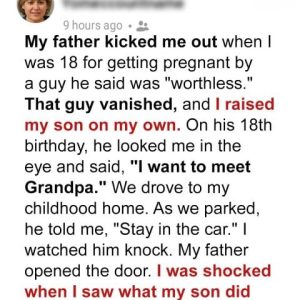


TOPICS:
TrumpSentencingHush moneyFelony chargesSupreme CourtConvictionBusiness recordsPolitical motivation
NEW YORK (TNND) — President-elect Donald Trump was sentenced Friday morning in New York for his conviction on 34 felony charges in his hush money case after the Supreme Court refused to block the sentencing, making him the first U.S. president to be convicted and sentenced for a crime to take office.
Trump could have been sentenced of up to four years in prison but instead was delivered a sentence that does not include penalties like jail time or probation in what’s called an unconditional discharge. Prosecutors did not oppose the judge’s decision, which means Trump will not serve any jail time, probation or pay any fines for a conviction on 34 counts of falsifying business records in a case that made him the first former or current president to be convicted of a felony.
“Never before has this court been presented with such a unique and remarkable set of circumstances,” said the judge overseeing the case, Juan M. Merchan. “This has been truly an extraordinary case.”
The sentencing comes just 10 days before Trump will be back in the Oval Office on Inauguration Day.
It is the only one of the four criminal cases against him that had a trial as the others stalled out before they could get there. Special counsel Jack Smith dropped his cases for Trump’s alleged mishandling of classified documents and for allegedly conspiring to overturn his 2020 election loss once he won the November election, and the state-level election interference case in Georgia has stalled out after Fulton County District Attorney was removed from it over a personal relationship with a lawyer that consulted the prosecution team.
He will not have to appear in person for the hearing but will be on video from Palm Beach, Florida, where he has based his presidential transition operation. Trump will be allowed to speak at the hearing but it’s unclear if he will do so. The president-elect has framed the case as a politically motivated witch hunt from its inception and was frequently threatened with penalties throughout the trial.
Trump was convicted of changing his business’ records to hide a $130,000 payment to porn star Stormy Daniels late in the 2016 presidential campaign to avoid her going public with an alleged sexual encounter between them a decade earlier. Trump has denied the encounter ever happened and said the prosecution was a politically motivated stunt to hurt his standing.
“This has been a very terrible experience,” Trump said during the hearing, adding: “The fact is, I’m totally innocent.”
He also returned to his accusation that the case was a weaponization of the government against him so that he would lose the election, calling it “an embarrassment to New York.”
He also dismissed that classifying the payments to Daniels as legal expenses to his personal attorney, which prosecutors said were a deceptive tactic to keep an embarrassing story for his campaign from going public.
“There was nothing else it could have been called,” Trump said in a post on Truth Social last week. “I was hiding nothing.”
Trump’s lawyers have made a series of moves to overturn to the verdict, dismiss the case and delay the sentencing since the jury handed down a guilt verdict in May. They have argued in multiple courts that a Supreme Court ruling granting presidents immunity are grounds to dismiss the case and that the immunity would have kept jurors from hearing some evidence used against him. After winning the election, they said the case should be tossed to prevent damaging his transition back into the White House.
None of those efforts were successful but they did convince Judge Juan Merchan, who oversaw the case, to delay Trump’s sentencing in July. He set a date last week to bring a conclusion to the lingering case.
Trump’s attorneys set out to block the sentencing with multiple appeals, including one to the Supreme Court that finally dashed their hopes with a 5-4 decision Thursday night declining to intervene.








